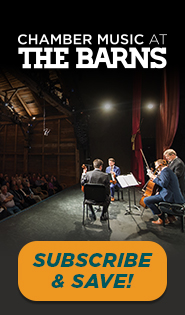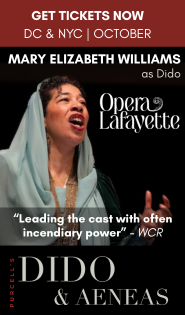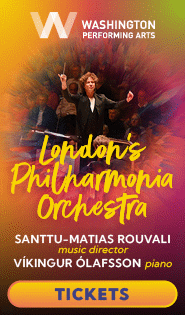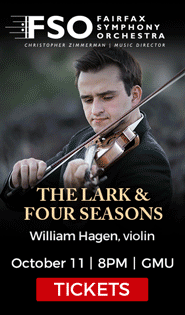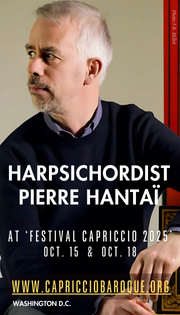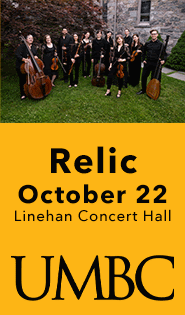Experiential Orchestra adds unnecessary noise to otherwise powerful program at LoC
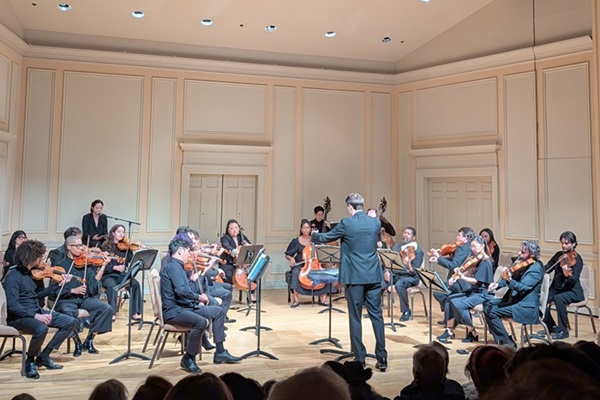
The Experiential Orchestra, led by conductor James Blachly, performed Arnold Schoenberg’s Verklärte Nacht at the Library of Congress Friday night. Photo: WCR
The Experiential Orchestra, founded by music director James Blachly in 2009, aims to personalize its performances for audiences. The Library of Congress presented a chamber orchestra-sized selection of these musicians Friday evening on its outstanding free concert series. The program delighted in its repertoire, all from the middle part of the 20th century, although its final component proved more gimmick than moving innovation.
This ensemble, which comes together for a few concerts each season, marked the 100th birthday of forgotten composer Julia Perry last March with a four-concert festival. Perry, a black woman who grew up in Ohio, enjoyed a successful career as performer, composer, and pedagogue. She studied abroad with Nadia Boulanger and Luigi Dallapiccola, but her life was cut short by a series of strokes in the 1970s and resulting complications, leaving her music to fall into oblivion.
Perry wrote the opening piece, Lament, for piano early in her 20s, later revising it under the title Prelude. Violinist Roger Zahab, one of the leaders of the Perry revival in recent years, made the all-strings orchestration played on this concert, after finding a reference to the composer’s own arrangement for that combination, now lost. The musicians relished the lush harmony of this compact but pleasing piece, with jazz-like chords bordering on atonality.
Blachly paired this unknown composer with elegiac music by two American contemporaries in a similarly neotonal style, both with important collections preserved by the Library of Congress. The prolific Alan Hovhaness dedicated his In Memory of an Artist to Sarah Berman, a self-taught Ukrainian immigrant who made art in the Naïve style. The viola section’s plangent melody in the first movement hovered over a bagpipe-like drone in the cellos and pizzicato accompaniment. The frenzied tremolo sound of the third movement, a broad crescendo of dissonance, framed a sentimental hymn.
Irving Fine’s Serious Song: A Lament for String Orchestra struck the same mournful tone. An intense melody began in the violin section, which had trouble here and throughout the evening achieving unified rhythm and intonation. As the melody later passed to the violas and the rest of the ensemble joined in an amassing of sound, the piece stabilized under the confident, assertive molding of Blachly’s hands.
Curtis Stewart then took the stage as soloist in Julia Perry’s long-lost Violin Concerto, of which he and the Experiential Orchestra released the world premiere recording earlier this year. Stewart, a violinist with the PUBLIQuartet, performed on one of the Library of Congress’s cherished historical instruments, the exquisite Guarneri violin made around 1730 and formerly played by Fritz Kreisler.
Stewart introduced the concerto with a singing exercise, first demonstrated by the orchestra and then imitated by the audience. Accomplished largely with gestures instead of words, this experiment gave the listener the visceral feel of the two principal intervals of the concerto, heard at the start of the soloist’s long opening cadenza, a harmonious major third followed by a dissonant major seventh.
The version of the concerto played in this concert is Perry’s revision with brass, woodwinds, and harp parts subsumed into an important role for piano, played with panache by Josh Mhoon. The middle section of the piece, a more neoclassical slow movement in the same vein as her Prelude, proved the best part of a piece whose sometimes monotonous parts did not quite make a convincing whole, in spite of the dedicated playing of soloist and orchestra.
Drawing on his popular music skills, Stewart improvised a sort of fiddle introduction to an encore that surpassed the main event. After walking around the orchestra, while playing, he stood by Mhoon at the piano for a poignant rendition of Fritz Kreisler’s Berceuse Romantique, a rich dessert. The dark-chocolate tone of the composer’s own violin glowed warmly in the room.
The evening’s less successful experiment in audience engagement came in the final work, the string orchestra version of Arnold Schoenberg’s gorgeous Verklärte Nacht. (This concert marks the end of the Library of Congress’s multi-concert commemoration of the 150th anniversary of Schoenberg’s birth this past September.) In the days before the concert, audience members were invited to submit secret confessions, like the one made in the poem by Richard Dehmel that inspired Schoenberg’s original sextet.
Violinist and author Ling Ling Huang then wove these unrelated musings into a text that she read while the piece was performed. Kudos to the musicians for trying something new, but the result turned out as banal as reality television. The narration, embarrassingly prosaic, only distracted from this emotionally varied score. Worse, the musicians, forced to compete with the amplified speaker, sacrificed ensemble unity and careful intonation and balance to an overheated interpretation.
Soprano Barbara Hannigan and pianist Bertrand Chamayou perform music by Scriabin, Messiaen, and Zorn 8 p.m. December 16. loc.gov
